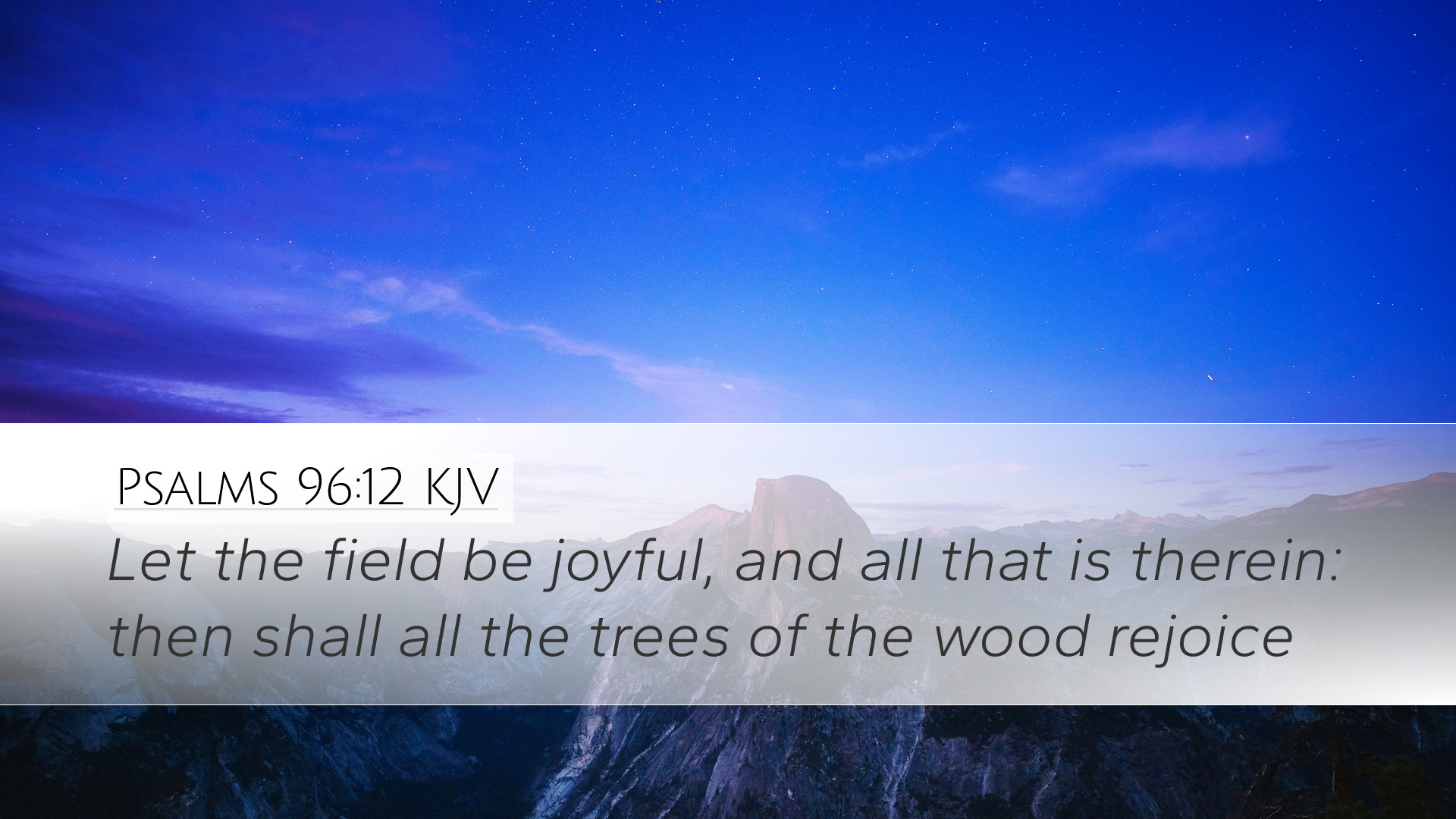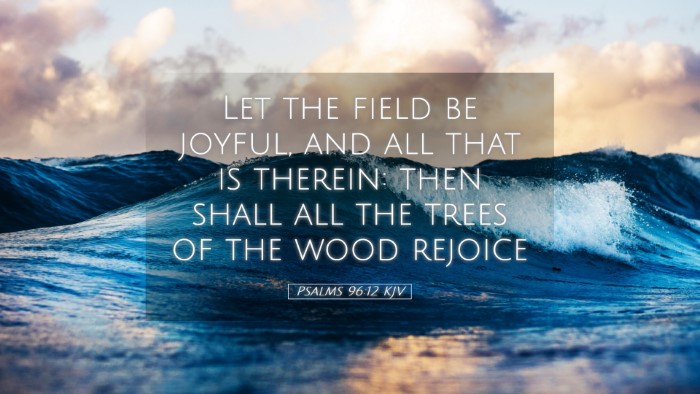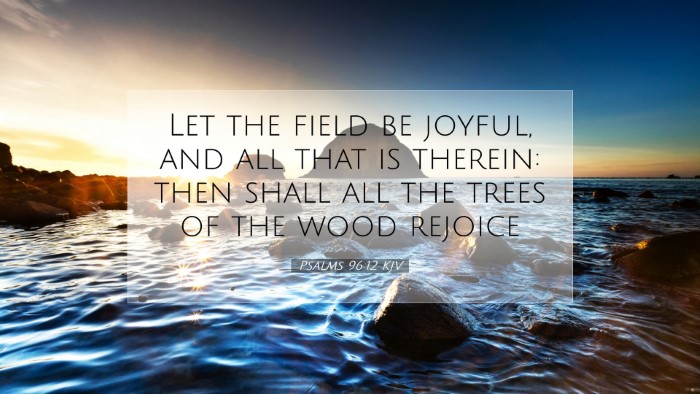Psalms 96:12 - Commentary and Insights
Verse: "Let the field be joyful, and all that is therein: then shall all the trees of the wood rejoice."
Overview
Psalms 96 is a hymn of praise that invites all creation to worship the Lord. This particular verse emphasizes the joy and rejoicing of nature in response to God's sovereignty and majesty. It reflects a profound truth about the relationship between the Creator and His creation, highlighting that nature itself celebrates the glory of God.
Commentary Synthesis
Insights from notable public domain commentaries provide a rich understanding of this verse and its implications for believers.
Matthew Henry's Commentary
Matthew Henry remarks that this verse is part of a grand celebration where nature is anthropomorphized to express joy. He notes that this joy is a response to God’s righteousness and His revelations. Henry emphasizes that the fields and trees represent the entirety of creation, which is called to recognize and reflect the glory of the Creator.
- Creation’s Response: Henry points out that just as humanity rejoices in God's blessings, so too does nature. This suggests a holistic view of worship, extending beyond human beings to the entire created order.
- Joy as a Natural Order: The joy of the fields and trees symbolizes an alignment with God's will, suggesting that creation flourishes under divine sovereignty. Henry encourages readers to see joy not only as an emotional response but as an integral element of creation fulfilling its glorifying purpose.
Albert Barnes' Notes on the Bible
Albert Barnes expands on the interpretation of this verse by emphasizing the cosmic dimensions of worship. He states that the call to joy is a prophetic declaration, anticipating a future time when all of creation will fully recognize and celebrate God’s glorious reign.
- Prophetic Imagery: The imagery of nature rejoicing serves as a foreshadowing of the restoration of all things under Christ’s lordship, leading believers to consider the eschatological implications of this joy.
- Nature’s Testimony: Barnes notes that nature acts as a witness to God's character; through its beauty and provision, it speaks of His goodness. This verse invites worshippers to see not only the beauty of the created world but also to acknowledge the Creator behind it.
Adam Clarke's Commentary
Adam Clarke provides a detailed linguistic and contextual analysis of Psalms 96:12. He identifies the significance of the 'field' and 'trees' as symbols of abundance and vitality in God’s creation. Clarke draws attention to the Hebrew terms utilized and their implications.
- Fields and Trees as Symbols: Clarke interprets the 'fields' as a metaphor for the richness of God’s provision and 'trees' as entities that symbolize life and stability. This suggests that when creation thrives, it reflects God's providence and care.
- Theological Implications of Joy: He argues that the joy of creation is directly connected to the recognition of God’s attributes, such as holiness and power. Clarke encourages believers to join in the chorus of creation’s praise, aligning their hearts with the joyful testimony of nature.
Theological Reflections
This verse invites a deeper theological reflection on the interconnectedness of all creation in worship. It raises important questions regarding the nature of joy, the significance of creation in God’s redemptive plan, and the responsibilities of humanity as stewards of the earth.
- Interconnectedness of Creation: The joy of the fields and trees suggests that all elements of creation are interrelated. This serves as a call to maintain a harmonious relationship with the environment, recognizing the beauty and purpose inherent in all things.
- Human Participation: As bearers of God’s image, humans are encouraged to lead in praising God, reflecting the joy that creation exhibits. This requires active participation in stewardship and a commitment to celebrate and preserve the beauty of the earth.
- Eschatological Hope: The verse also alludes to the future restoration of creation, calling Christians to anticipate a time when all of nature will be liberated from decay and will participate fully in the praise of God.
Conclusion
Psalms 96:12 serves as a powerful reminder of the joy that characterizes God’s creation. It is a call to recognize the beauty of the world around us and to join in the joyful proclamation of God's glory. As we reflect on this verse, may we be inspired to cultivate a spirit of joy and worship in our lives and our communities, mirroring the praise of the fields and trees that rejoice in the presence of the Lord.


